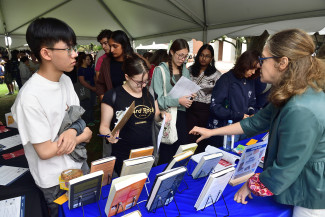
Johns Hopkins UniversityEst. 1876
America’s First Research University
Adapting to the Importance of the Student Misconduct Investigation

For colleges and universities, investigating discrimination, harassment, academic dishonesty, and other forms of wrongdoing that undermine the institution’s mission and academic programs has become nothing less than a critical preliminary step in support of disciplinary and/or corrective action. Whether campus leaders are confronted with managing the aftermath of an active shooter incident, sorting through allegations regarding a student-on-student sexual assault, or determining the extent to which provisions within the student handbook or code of conduct may have been violated, post-secondary institutions are subject to increasing scrutiny through a range of lawsuits in state and federal courts and in the court of public opinion. In the face of such scrutiny, the challenge for student misconduct investigations center on executing sound and reliable processes that separate fact from fiction, and truth from falsehoods, without ignoring the legitimate opportunities to restore students in favor of punitive action.
On almost a weekly basis, the systems and processes used among institutions of higher education to investigate troubling incidents regarding student conduct are being tested. For instance, consider the plight of a black student at Yale University who may have been subjected to racial profiling by a report from a white student to police that the black student was a suspicious person on campus. Was the report to the police regarding the black student made in good faith or was the report to the police knowingly false and racially motivated by the white student based on a discriminatory animus toward persons of color on campus?[1] Or, consider a Title IX sexual assault dispute wherein one student claims that she was the victim of an unwelcome sexual advance that resulted in sexual assault, but the other student contends that the parties engaged in consensual sex. Where the students involved offer conflicting stories regarding the incident, the outcome of the campus investigation will be critical.
Besides incidents that might flow from student misconduct regarding race or sex, colleges and universities often wrestle with academic dishonesty allegations where students may find their reputation or chance to complete their degree program and career goals placed in jeopardy.[2] Where the facts are in dispute, and there is no admission of wrongdoing, how should administrators conduct an investigation? Without accurate, verifiable information, campus administrators and decision-makers are at extreme risk of misunderstanding the salient facts, failing to choose the best available intervention strategy, and placing an institution’s student body and workforce at risk.

Whether disputed incident involves students, faculty, or staff employees, the term “investigation” is widely used but the processes and protections that are triggered by the commencement of an investigation are anything but ordinary and will vary based on the nature and context of the alleged wrongdoing. For students and their families that are directly impacted by college or university disciplinary action, the investigation, or absence of a thorough investigation, will likely influence the decisions reached by campus administrators and may be the target of criticism or litigation. Given these possibilities, sound risk avoidance strategies demand that the investigation of student misconduct take on a logical, pragmatic approach that can withstand legal challenge in a court of law and preserve public confidence in colleges and universities. Moreover, as an institution’s investigation of student misconduct seeks to comply with state and federal law, a vital concern will be whether the investigation can distinguish between student misconduct that merit interim accommodations or disciplinary action (i. e., issuing a no-contact order, suspension, expulsion) from conduct that is immature or rude and deserving of a remedial response that provides the sometimes elusive “second chance” in response to human failings.
While the investigation process will examine issues such as intent, frequency, and severity of the alleged misconduct, the veracity of witness statements, and the sequence of events regarding the wrongdoing, it is also imperative that the student misconduct investigation go beyond legal liability questions or providing support for enforcing penalties. College and university investigations of student misconduct should pursue a relentless campaign that promotes civility and personal integrity in the hearts and minds of students. It is true that students matriculating through academic degree programs develop competencies in science, mathematics, fine arts, social sciences, and even ethics. However, it is also true that much of what students learn during the collegiate experience takes place inside and outside the classroom. In light of this reality, any process used to examine student misconduct, assess student behavior, or analyze our campus communities and workplaces, represents an investigation that should include an inquiry of what can be done to help students make better choices.
Because investigations are influenced by various factors including the selection of the investigator or the investigation team, the scope of the investigation, or time constraints that may be placed on the investigation, the complexity of the investigation process should not be under-estimated. The persons selected to lead or even monitor student misconduct investigations must be carefully selected and demonstrate a commitment to problem-solving and de-escalation of tensions. For students who have been victimized or accused of misconduct, their initial experience with the investigation process will go a long way toward achieving resolution or prolonged confrontation. In addition to a sense of compassion and fairness, higher education will be well served by campus investigations that acknowledge the legal liability implications at stake for colleges and universities, but also offers the consultation students and administrators need to find a productive way forward for all.
Oren R. Griffin is an Associate Dean and Professor of Law at the Mercer University and author of Investigating College Student Misconduct: Understanding the Internal Investigation Process in Higher Education, Johns Hopkins University Press.
[1] Brandon Griggs, CNN, A black Yale graduate student took a nap in her dorm’s common room. So a white student called police, May 12, 2018. https://www.cnn.com/2018/05/09/us/yale-student-napping-black-trnd/index.html (last visited 11/27/18)
[2] Dave Collins, AP, College fights ex-student’s request for anonymity in lawsuit, 8/1/17. https://www.seattletimes.com/nation-world/college-fights-ex-students-request-for-anonymity-in-lawsuit/ last viewed November 20, 2018 (This August 2017 article describes an incident where students accused of academic dishonesty were so concerned about the potential impact the on their reputation that when challenging disciplinary action through litigation students sought to use a pseudonym rather than their actual names during court proceedings.)
